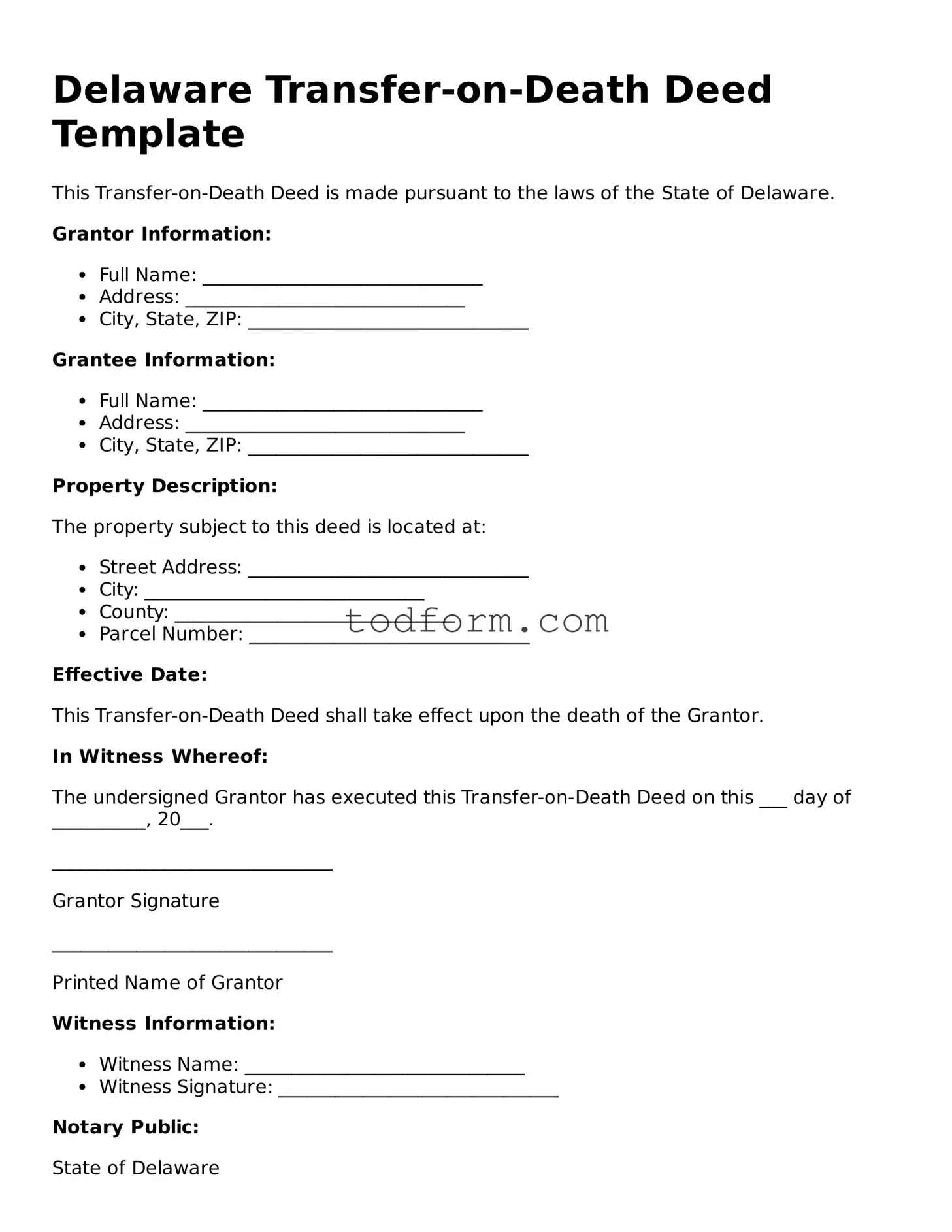Delaware Transfer-on-Death Deed Template
This Transfer-on-Death Deed is made pursuant to the laws of the State of Delaware.
Grantor Information:
- Full Name: ______________________________
- Address: ______________________________
- City, State, ZIP: ______________________________
Grantee Information:
- Full Name: ______________________________
- Address: ______________________________
- City, State, ZIP: ______________________________
Property Description:
The property subject to this deed is located at:
- Street Address: ______________________________
- City: ______________________________
- County: ______________________________
- Parcel Number: ______________________________
Effective Date:
This Transfer-on-Death Deed shall take effect upon the death of the Grantor.
In Witness Whereof:
The undersigned Grantor has executed this Transfer-on-Death Deed on this ___ day of __________, 20___.
______________________________
Grantor Signature
______________________________
Printed Name of Grantor
Witness Information:
- Witness Name: ______________________________
- Witness Signature: ______________________________
Notary Public:
State of Delaware
County of _______________
This instrument was acknowledged before me on this ___ day of __________, 20___ by ______________________________ (Grantor).
______________________________
Notary Public Signature
My Commission Expires: ________________
